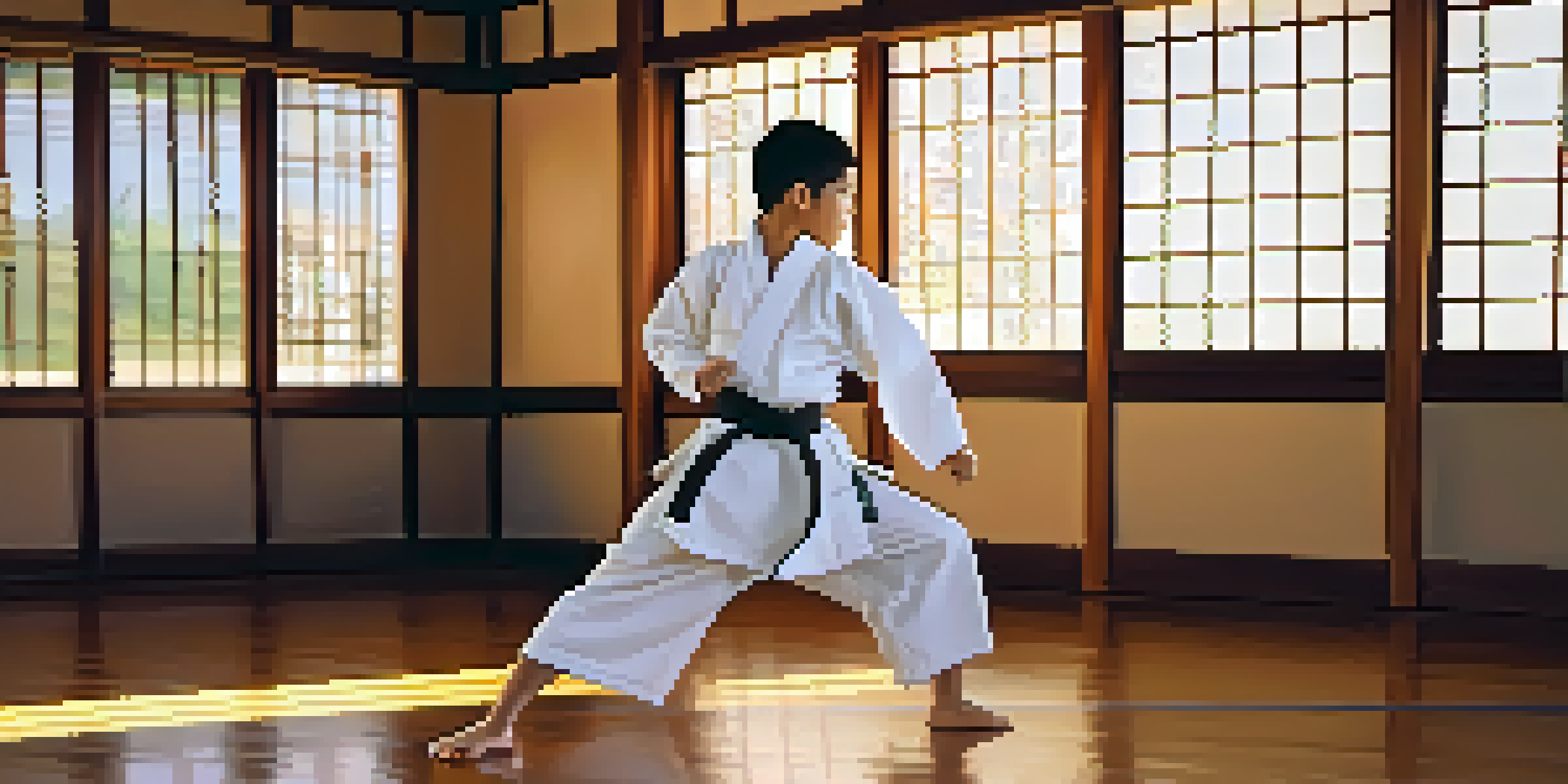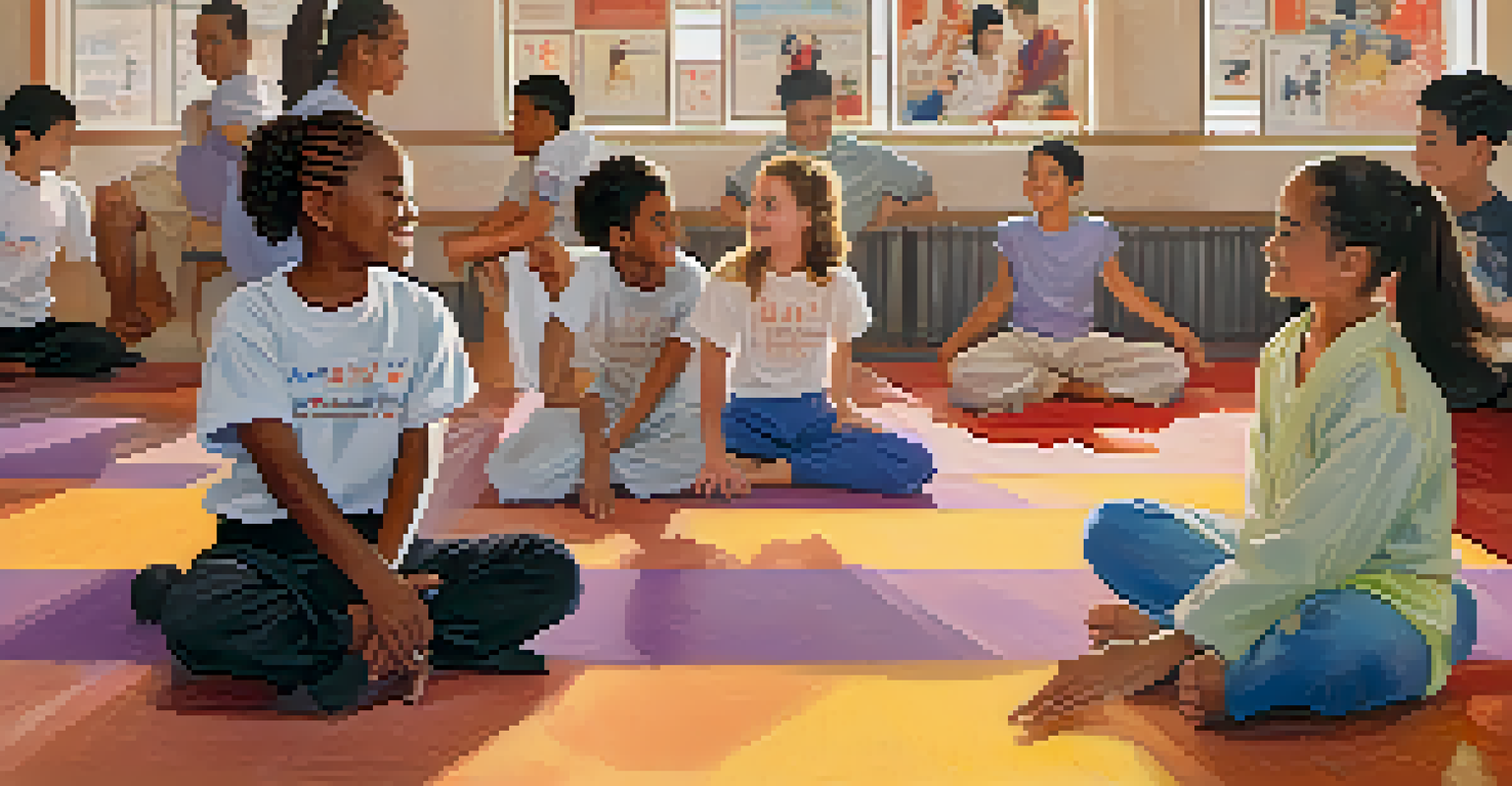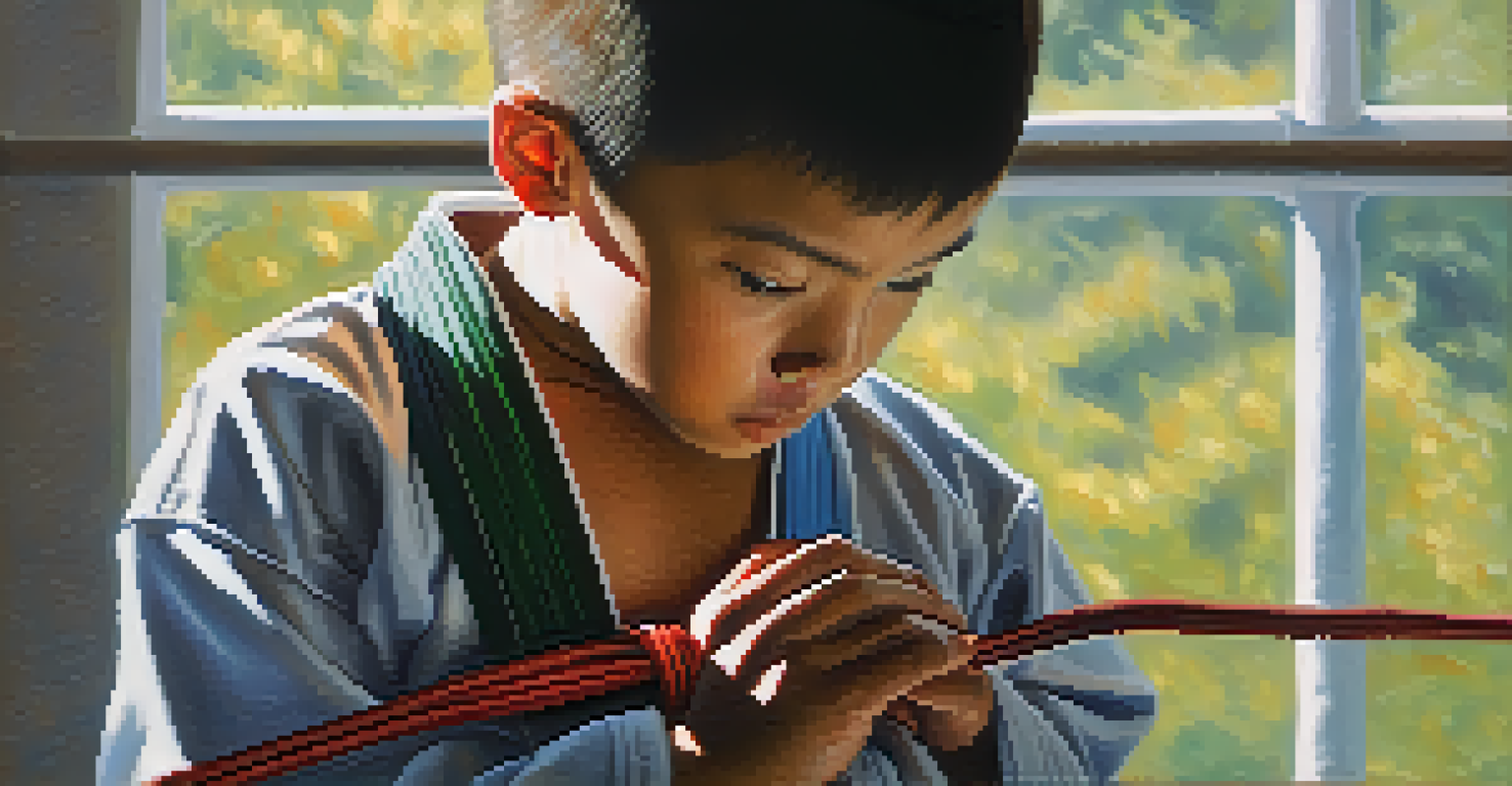The Impact of Martial Arts on Youth Mental Health

Understanding Mental Health Challenges in Youth Today
Today's youth face a multitude of mental health challenges, including anxiety, depression, and stress from academic pressures. These issues can stem from various sources, such as social media, family dynamics, or peer relationships. As parents and guardians, understanding these challenges is essential for providing the right support.
The greatest weapon against stress is our ability to choose one thought over another.
According to recent studies, nearly one in five young people experience mental health issues at some point. This statistic highlights the increasing need for effective coping strategies to help them navigate these turbulent years. Finding an outlet for stress and emotions is crucial for their overall well-being.
Martial arts can serve as a powerful tool in addressing these mental health challenges. By offering a structured environment, martial arts can help youth learn discipline and resilience, which are vital for overcoming difficulties in their lives.
How Martial Arts Promote Discipline and Focus
One of the key principles of martial arts is discipline. Through repetitive training routines and the pursuit of mastery, students learn to focus their minds and bodies. This disciplined approach can translate into other areas of their lives, such as academics and personal relationships.

Practicing martial arts requires concentration and commitment, skills that are crucial for success in any endeavor. As young practitioners learn to set and achieve goals, they gain confidence in their abilities. This newfound focus can help them tackle challenges outside of the dojo, including schoolwork and social interactions.
Martial Arts Boost Youth Mental Health
Engaging in martial arts helps youth build discipline, focus, and emotional regulation, addressing various mental health challenges.
Moreover, the structured nature of martial arts classes fosters a sense of routine. This predictability can provide a comforting framework in a world full of uncertainties, thereby enhancing mental clarity and reducing anxiety.
Building Self-Esteem Through Martial Arts Training
Martial arts training often involves earning belts or ranks, which serves as a tangible recognition of progress. This system encourages youth to set personal goals and celebrate achievements, no matter how small. Each milestone boosts their self-esteem and motivates them to push further.
Self-discipline is the magic power that makes you virtually unstoppable.
Additionally, the supportive community found in martial arts schools can play a significant role in building confidence. Practitioners often encourage one another, creating an environment where young people feel valued and accepted. This sense of belonging can counteract feelings of isolation that many youth experience.
As they become more skilled, youth also gain a sense of empowerment. This newfound strength extends beyond physical prowess; it instills a belief in their ability to overcome obstacles, which is invaluable for mental health.
Enhancing Emotional Regulation Through Martial Arts
Martial arts training involves not only physical exertion but also emotional control. Practitioners learn to manage their emotions, especially in high-pressure situations. This skill is crucial for youth who may struggle with anger, frustration, or anxiety.
Techniques like controlled breathing and mindfulness are often integrated into training sessions. These practices help students calm their minds and respond more thoughtfully to challenges. As they learn to regulate their emotions, youth can better handle everyday stressors and conflicts.
Building Confidence and Community
The structured environment of martial arts fosters self-esteem and social connections, providing young people with a supportive community.
Moreover, martial arts often emphasize respect and humility, teaching practitioners how to respond to adversity with composure. This emotional resilience is a vital component of mental health, equipping young people with tools to navigate life's ups and downs.
Fostering Social Connections Through Martial Arts Classes
Martial arts classes provide a unique social environment where youth can connect with peers who share similar interests. This camaraderie can be particularly beneficial for those who may feel socially isolated or struggle to make friends. The shared experience of training fosters bonds that can last a lifetime.
As students work together in sparring sessions or group exercises, they learn the value of teamwork and cooperation. These interactions not only enhance social skills but also create a support system that can encourage positive mental health. Having friends in the dojo can significantly impact a young person's sense of belonging.
Furthermore, martial arts often involve community events, competitions, and demonstrations. These activities encourage participation and engagement, helping youth to feel more connected to their martial arts community and peers outside of school.
The Role of Mindfulness in Martial Arts Practice
Mindfulness is a core component of many martial arts disciplines. Through techniques such as meditation and focused breathing, practitioners learn to be present in the moment. This practice can help alleviate anxiety and improve overall mental health.
By incorporating mindfulness into training, youth can develop a greater awareness of their thoughts and feelings. This heightened sense of self-awareness enables them to identify triggers and manage their reactions more effectively. Learning to stay grounded during challenging situations is a life skill that benefits their mental health.
Mindfulness Enhances Emotional Balance
Incorporating mindfulness techniques in martial arts training allows youth to manage stress and improve their overall mental well-being.
Moreover, the meditative aspects of martial arts can promote relaxation and reduce stress levels. In a world where young people are often overwhelmed, these moments of calm can be essential for maintaining emotional balance.
Incorporating Martial Arts into Youth Mental Health Programs
As the positive effects of martial arts on mental health become more recognized, many schools and organizations are looking to incorporate these practices into youth mental health programs. Offering martial arts classes can provide an engaging way for young people to learn vital life skills while addressing mental health concerns.
Programs that integrate martial arts can help create a holistic approach to youth well-being. By combining physical activity with mental health education, participants can develop both their physical and emotional resilience. This comprehensive strategy can lead to more effective outcomes.

Additionally, community partnerships can enhance the reach of these programs, making martial arts accessible to a broader range of youth. By bridging the gap between physical fitness and mental health, we can foster healthier, more resilient young individuals.